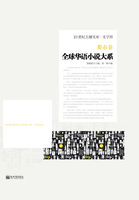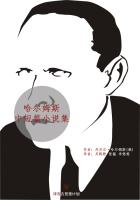The Comedian Not savage Hun, nor "barbarous Vandyke," nor demon Apache, could wish to dwell upon the state of mind of the Chief of the Rouen Volunteer Fire Department; therefore, let the curtain of mercy descend. "Without a word, he turned and dragged the nozzle to the eastern eaves, whence, after a warning gesture to those below, he dropped it to the ground. And, out of compassion, it should be little more than hinted that the gesture of warning was very slight.
When the rescued band reached the foot of the last flight of stairs, they beheld the open doorway as a frame for a great press of intent and con- torted faces, every eye still strained to watch the roof; none of the harrowed spectators comprehending the appearance of the girl's figure there, nor able to see whither she had led the five young men, until Tappingham Marsh raised a shout as he leaped out of the door and danced upon the solid earth again.
Then, indeed, there was a mighty uproar; cheer after cheer ascended to the red vault of heaven; women wept, men whooped, and the people rushed for the heroes with wide-open, welcoming arms. Jefferson Bareaud and Frank Chenoweth and General Trumble dashed at Tom Vanrevel with incoherent cries of thanksgiving, shaking his hands and beating him hysterically upon the back. He greeted them with bitter laughter.
"Help get the water into the next warehouse; this one is beyond control, but we can save the other two. Take the lines in through the door!" He brushed the rejoicing friends off abruptly, and went on in a queer, hollow voice: "There are stairs--and I'm so sorry I didn't think of it until a moment ago, because you could have brought the water up that way!"
A remarkable case of desertion had occurred, the previous instant, under his eyes. As the party emerged from the warehouse into the street, Tom heard Crailey say hurriedly to Miss Carewe: "Let me get you away come quickly!" saw him suddenly seize her band, and, eluding the onrushing crowd, run with her round the corner of the building. And somehow, through what inspiration, or through what knowledge of his partner's "temperament," heaven knows, the prophetic soul of the chief was unhappily assured that Crailey would offer himself as escort to her home, and find acceptance. But why not? Was it Crailey who had publicly called his fellow-man fool, idiot, imbecile, at the top of his lungs, only to find himself the proven numskull of the universe! Tom stood for a moment staring after the vanishing pair, while over his face stole the strangest expression that ever man saw there; then, with meekly bowed shoulders, be turned again to his work.
At the corner of the warehouse, Miss Carewe detached her hand from Crailey's, yet still followed him as he made a quick detour round the next building. A minute or two later they found themselves, undetected, upon Main Street in the rear of the crowd. There Crailey paused.
"Forgive me," he said, breathlessly, "for taking your hand. I thought you would like to get away."
She regarded him gravely, so that he found it difficult to read her look, except that it was seriously questioning; but whether the interrogation was addressed to him or to herself he could not determine. After a silence she said:
"I don't know why I followed you. I believe it must have been because you didn't give me time to think."
This, of course, made him even quicker with her than before. "It's all over," he said briskly. "The first warehouse is gone; the second will go, but they'll save the others easily enough, now that you have pointed out that the lines may be utilized otherwise than as adjuncts of performances on the high trapeze!" They were standing by a picket-fence, and he leaned against it, overcome by mirth in which she did not join. Her gravity reacted upon him at once, and his laughter was stopped short. "Will you not accept me as an escort to your home?" he said formally. "I do not know," she returned simply, the sort of honest trouble in her glance that is seen only in very young eyes.
"`What reason in the world!" he returned, with a crafty sharpness of astonishment.
She continued to gaze upon him thoughtfully, while he tried to look into her eyes, but was baffled because the radiant beams from the lady's orbs (as the elder Chenoweth might have said) rested somewhere dangerously near his chin, which worried him, for, though his chin made no retreat and was far from ill-looking, it was, nevertheless, that feature which he most distrusted. "Won't you tell me why not?" he repeated, uneasily.
"Because," she answered at last, speaking hesitatingly, "because it isn't so easy a matter for me as you seem to think. You have not been introduced to me, and I know you never will be, and that what you told me was true."
"Which part of what I told you?" The question escaped from him instantly.
"That the others might come when they liked, but that you could not."
"Oh yes, yes." His expression altered to a sincere dejection; his shoulders drooped, and his voice indicated supreme annoyance. "I might have known someone would tell you! Who was it? Did they say why I--"
"On account of your quarrel with my father."
"My quarrel with your father!" he exclaimed; and his face lit with an elated surprise; his shoulders straightened. He took a step nearer her, and asked, eagerly: "Who told you that?"
"My father himself. He spoke of a Mr. Vanrevel whom he--disliked, and whom I must not meet; and, remembering what you had said, of course I knew that you were he."
"Oh!" Crailey's lips began to form a smile of such appealing and inimitable sweetness that Voltaire would have trusted him; a smile alto- gether rose-leaves. "Then I lose you," he said, "for my only chance to know you was in keeping it hidden from you. And now you understand!"















